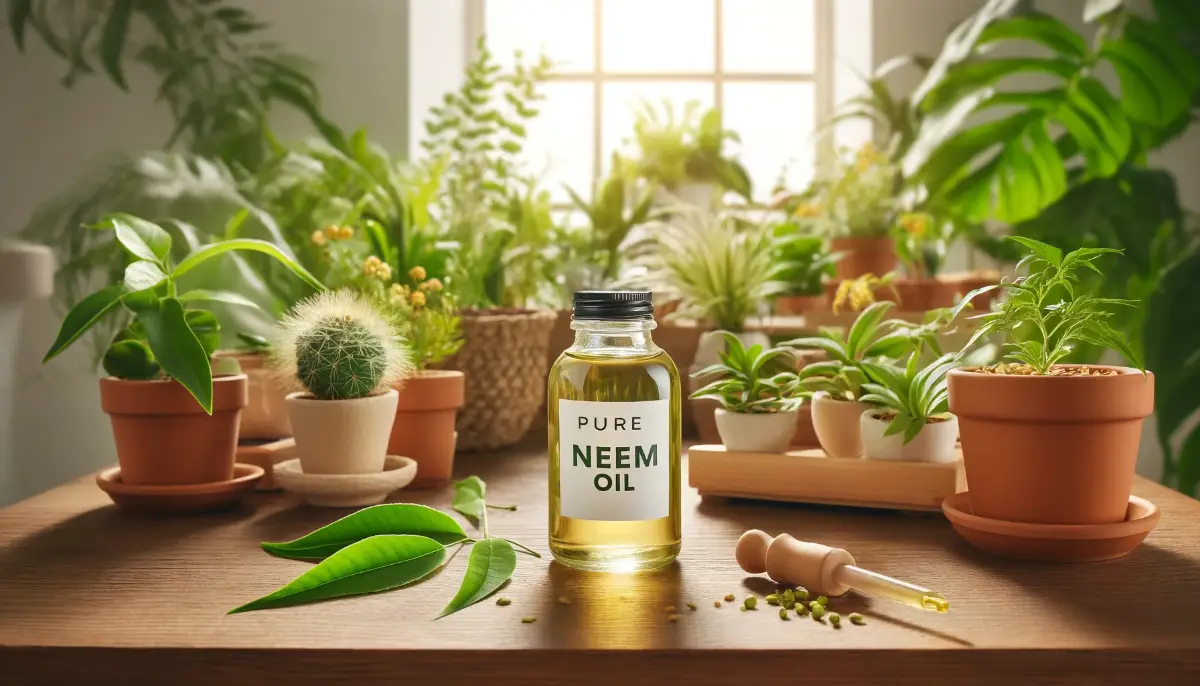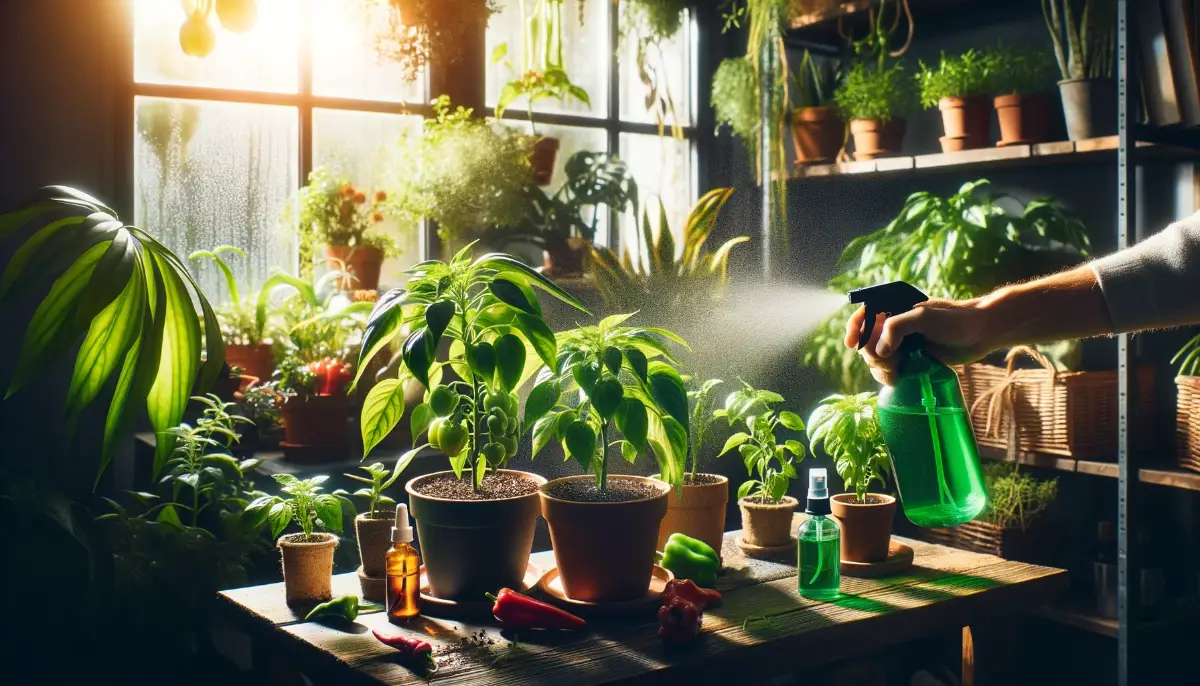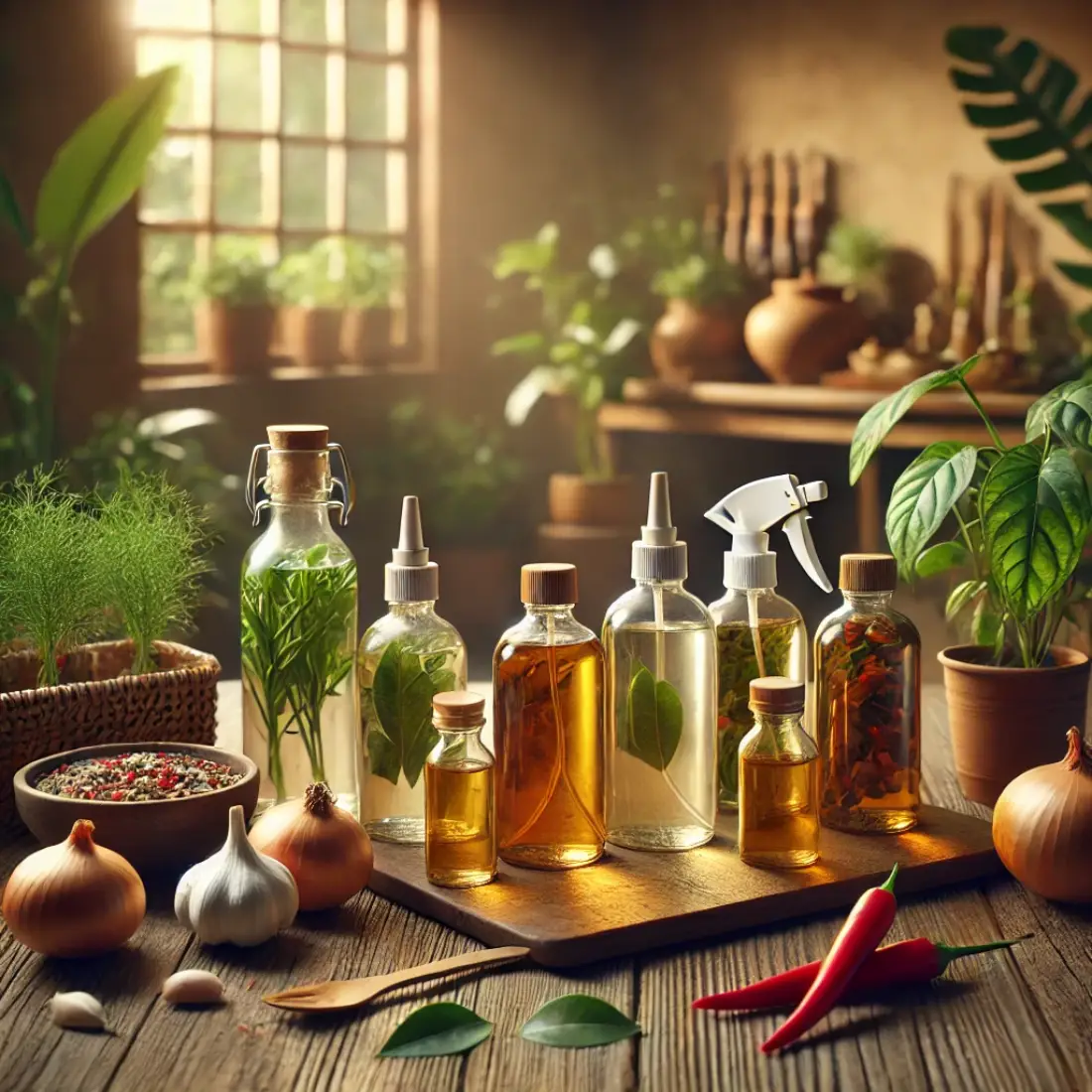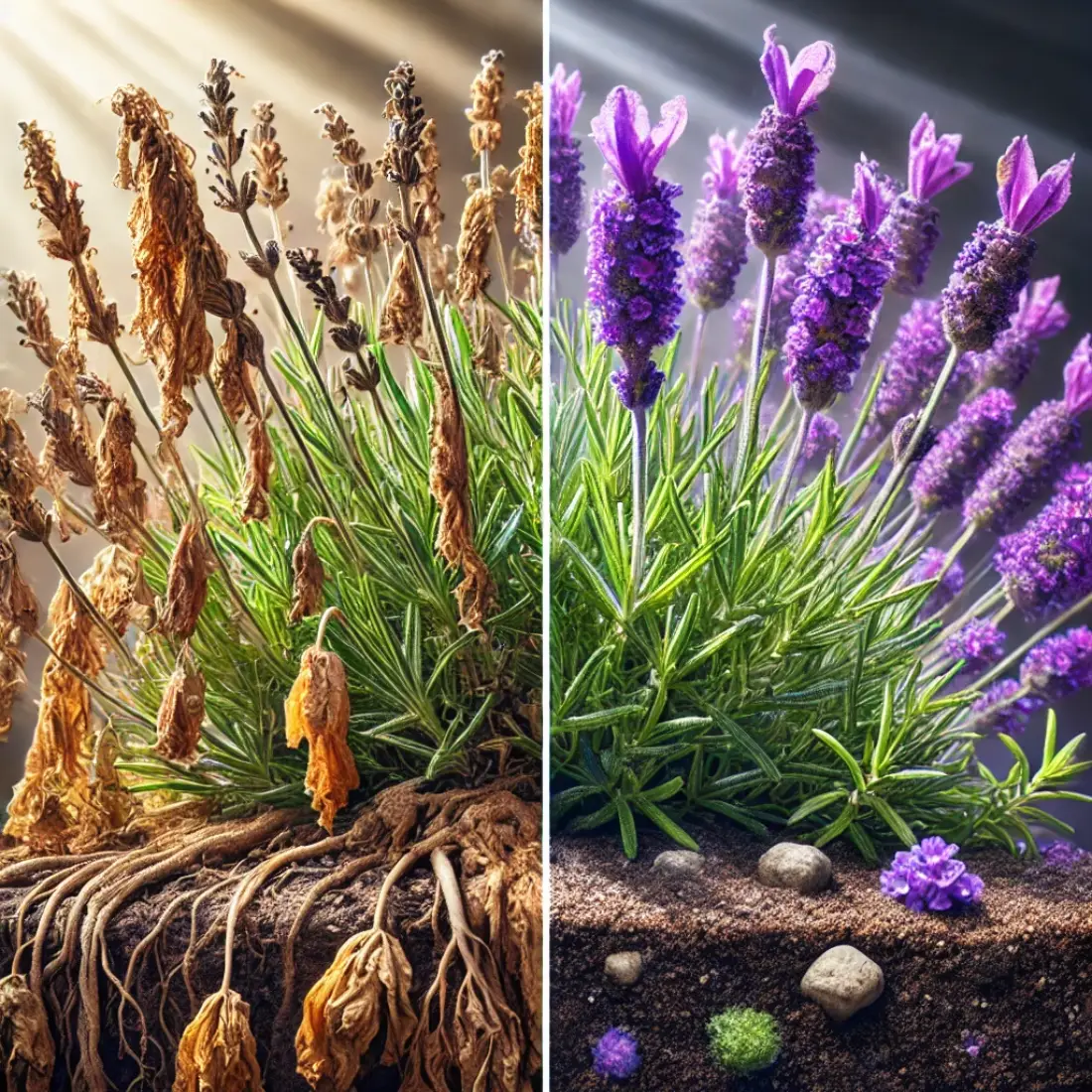Jojoba oil, derived from the seed of the jojoba plant, is a versatile and sustainable option for indoor garden enthusiasts seeking natural alternatives to synthetic pesticides and plant care solutions.
Its application spans from pest control to fungal protection, offering an eco-friendly approach to maintaining healthy indoor gardens.
- Jojoba oil acts as a natural pesticide, effectively controlling a range of common garden pests.
- It provides a protective barrier against fungal diseases, promoting plant health.
- Jojoba oil is safe for use around pets and humans when applied as directed.
The Role of Jojoba Oil in Integrated Pest Management (IPM)
Integrated Pest Management (IPM) is a holistic approach to garden care that emphasizes the use of natural remedies and preventive measures to manage pests. Jojoba oil fits perfectly into this strategy by offering a non-toxic, environmentally friendly method of pest control.
It works by forming a physical barrier on plant surfaces, suffocating pests like aphids and mites without harming beneficial insects, thus maintaining the ecological balance of your indoor garden.
Application Tips for Jojoba Oil in Indoor Gardening
To harness the full benefits of jojoba oil, it’s essential to apply it correctly. Mix a few tablespoons of oil with a gallon of water and spray it directly onto the plants, focusing on areas where pests are most likely to be found. It’s best applied during cooler parts of the day to avoid evaporation and ensure maximum absorption by the plants.
Regular application, especially during the pest’s growth cycles, can prevent infestations and protect your indoor garden throughout the year.
Advanced Uses and Benefits of Jojoba Oil in the Indoor Garden
Jojoba oil, renowned for its gentle efficacy and environmental friendliness, extends beyond simple pest control to encompass a wide range of benefits and applications in the indoor garden. Its utility in promoting plant health and vigor, alongside its ability to protect against a myriad of pests and diseases, makes it an indispensable tool for the conscientious gardener.
Protecting Plants from Fungal Growth and Diseases
Jojoba oil’s fungicidal properties offer a natural solution to combat and protect against fungal growth on indoor plants. A blend of jojoba oil with water can create an effective barrier against fungal spores, reducing the incidence of diseases like powdery mildew and blight.
Regular application ensures a protective coat on the plant surfaces, minimizing fungal infections and promoting a healthier garden environment.
Enhancing Plant Health and Vigor
By safeguarding plants from pests and diseases, jojoba oil contributes significantly to their overall health and vigor. Healthy plants are better able to withstand environmental stressors and are more likely to produce lush foliage and vibrant blooms.
The application of jojoba oil as part of regular plant care routines can result in stronger, more resilient plants that are capable of thriving in the indoor garden setting.
Jojoba Oil for Specific Pest Control
Jojoba oil, derived from the seeds of the jojoba plant, is highly esteemed in the gardening world for its effectiveness in managing pest infestations, particularly against a range of soft-bodied pests that commonly plague indoor gardens.
Its mechanism is straightforward yet efficient; when applied to pests, it forms a coating that impedes their respiratory functions, essentially suffocating them without causing harm to the plants.
Effective Against Soft-bodied Pests
Jojoba oil proves to be particularly potent against pests with soft exteriors, such as aphids, whiteflies, spider mites, and mealybugs. These pests are known for their destructive feeding habits, which can weaken plants by sucking sap from the leaves and stems, leading to a decline in plant health and vigor.
By applying jojoba oil, gardeners can create a protective barrier that safeguards plants from these invasive pests.
Jojoba Oil Spray Recipe
Ingredients:
- Water
- Jojoba oil
Instructions:
- Prepare the Solution: Combine about 1 to 2 teaspoons of jojoba oil with 1 quart (approximately 1 liter) of water in a spray bottle. The exact ratio may vary, so it’s essential to start with a lower concentration to see how your plants react.
- Mix Well: Shake the mixture thoroughly to ensure the oil is well dispersed throughout the water. Since oil and water naturally separate, you’ll need to shake the spray bottle before each use.
- Test Spray: Before applying the mixture to all your plants, select a small, inconspicuous area on one plant to test. After 24 hours, check the test area for any adverse reactions. If the plant shows no signs of damage, you can proceed to treat other plants.
- Apply to Plants: Spray the mixture directly onto the foliage of your indoor plants, focusing on the undersides of leaves where pests often reside. Avoid spraying during the hottest part of the day to minimize the risk of leaf burn.
- Reapply as Needed: Depending on the severity of the pest problem, you may need to apply the mixture once a week or more frequently. Monitor your plants for pests and reapply as necessary.
Remember, while jojoba oil is generally safe for plants, each plant species may react differently. Always perform a patch test before applying any new treatment to your plants.
Additionally, maintaining proper plant care practices, such as adequate watering and lighting, can help reduce the likelihood of pest infestations and diseases.
Application Method
The application involves diluting jojoba oil with water to create a spray solution, which is then applied directly onto the affected plants. It’s crucial to ensure thorough coverage, especially on the undersides of leaves where pests often reside.
Regular monitoring and reapplication may be necessary to maintain effective control over the pest population.
Safety and Environmental Benefits
Jojoba oil is favored not only for its pest control capabilities but also for its safety profile. Being a natural, biodegradable substance, it poses minimal risk to humans, pets, and beneficial insects, making it an excellent choice for gardeners seeking eco-friendly pest management solutions.
This aligns well with integrated pest management (IPM) strategies, emphasizing sustainable and environmentally responsible practices.
Advantages Over Synthetic Pesticides
Unlike synthetic chemical pesticides, jojoba oil does not lead to the development of pest resistance over time. This is a significant advantage, as many pests can become immune to conventional pesticides, rendering them ineffective and forcing gardeners to seek stronger, potentially more harmful alternatives.
Jojoba oil offers a sustainable, long-term solution to pest management that complements the natural ecosystem of the indoor garden.
Integrating Jojoba Oil into Pest Management Plans
For best results, jojoba oil should be integrated into a comprehensive pest management plan that includes regular plant inspection, proper sanitation, and the use of other natural pest control methods as needed. This holistic approach ensures that indoor gardens remain healthy and vibrant, free from the detrimental impacts of pest infestations.
By leveraging the natural pest control properties of jojoba oil, gardeners can protect their indoor plants in a safe, effective, and environmentally friendly manner. Its broad-spectrum efficacy against common garden pests, coupled with its safety profile, makes jojoba oil a valuable tool in any gardener’s arsenal for maintaining plant health and vitality.
Complementary Natural Remedies for Indoor Plants
In addition to jojoba oil, other natural oils and substances can be used in conjunction to provide comprehensive care for indoor plants. Neem oil, for example, offers broad-spectrum pest control and can be alternated with jojoba oil for enhanced effectiveness.
Essential oils such as lavender and peppermint can deter pests while adding a pleasant aroma to the indoor garden. These complementary remedies, when used alongside jojoba oil, create a robust defense system that protects plants from pests and diseases.
FAQs for Jojoba Oil in Indoor Gardens
Can I use jojoba oil on all types of indoor plants?
Most indoor plants tolerate jojoba oil well, especially when diluted properly. However, it’s recommended to do a patch test on sensitive plants before full application.
How does jojoba oil benefit my indoor garden?
Jojoba oil acts as a natural pest deterrent and fungicide, helping to control common pests like aphids and spider mites, and prevent fungal diseases without using harsh chemicals.
Is jojoba oil safe for pets and children?
Yes, when used as directed, jojoba oil is safe and non-toxic, making it a family- and pet-friendly option for indoor gardening.
How often should I apply jojoba oil to my indoor plants?
For preventive maintenance, applying once every two to three weeks is sufficient. For active pest infestations, apply once a week or as needed until the problem is under control.
Can jojoba oil be mixed with other natural remedies?
Yes, jojoba oil can be combined with other natural ingredients like neem oil or essential oils to enhance its effectiveness. Always mix a small test batch first to ensure compatibility.
Will jojoba oil leave a residue on my plants?
When properly diluted, jojoba oil should not leave a harmful residue. However, it can leave a slight sheen on leaves, which is not harmful and can be gently wiped off if desired.
How do I prepare a jojoba oil solution for my indoor garden?
Mix 1-2 teaspoons of jojoba oil with 1 quart of water in a spray bottle. Shake well before applying to ensure the oil is evenly distributed.
Can I use jojoba oil on flowering indoor plants?
Yes, jojoba oil is generally safe for flowering plants. However, avoid applying it directly to the flowers to prevent any potential damage.
What pests does jojoba oil help control?
Jojoba oil is effective against a variety of pests, including aphids, mealybugs, spider mites, and whiteflies, by suffocating them without harming the plant.
Are there any plants that should not be treated with jojoba oil?
While jojoba oil is safe for most plants, some may be more sensitive to oils. It’s always best to conduct a patch test on a small area of the plant first and wait 24 hours to check for any adverse reactions.









